Are you struggling with constipation? Tired of being full of poop? This article will provide you with tried and true strategies for helping to get your bowels moving. We have details on the latest research and products that will help you get things moving.
It’s a well-known fact that dietary fiber is a critical factor in gut health. The trillions of bacteria in our gut rely upon fiber for food, and fiber also helps add bulk to stool, promotes movement of waste material through the digestive tract, and acts as a scrub brush. It also eliminates harmful bacteria, excess cholesterol and other waste from the GI tract.
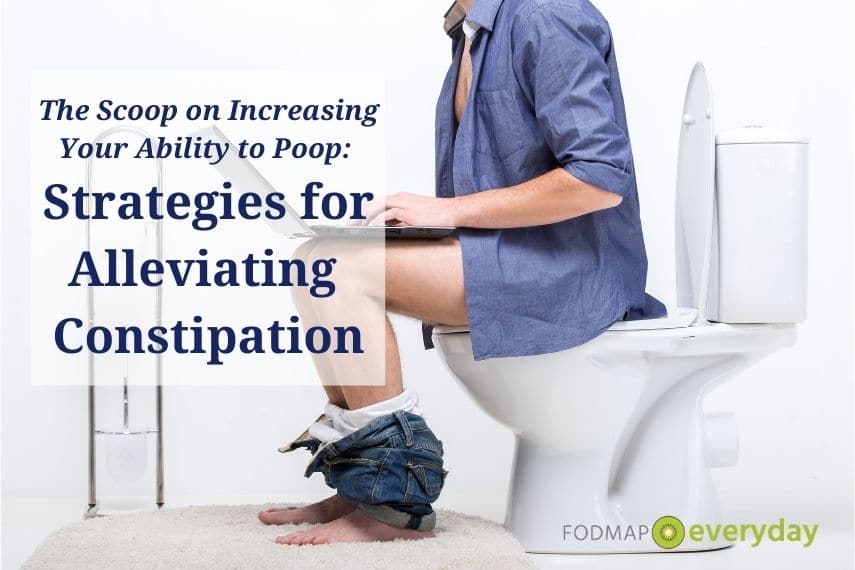
The recommended daily intake of dietary fiber for adults is 25-38 grams, though most Americans get less than half this amount most days. Increasing fiber intake and aiming for the higher end of the range (30g+) is one powerful way to alleviate constipation.
Suggestions For Fiber Intake
- Eat at least three to five cups of fruit and vegetables per day
- Four to six half-cup servings of whole grains (such as whole wheat, oats, amaranth, teff, millet, corn or brown rice) per day
- Two to three half-cup servings of legumes (e.g. beans, lentils, peas) per day
- And one to two small servings of nuts and seeds daily (e.g. chia seeds, flax seeds, sunflower seeds, pumpkin seeds).
There are two main types of fiber found in plant foods: soluble fiber and insoluble fiber. Soluble fiber absorbs water and can add moisture and “fluffiness” to stool, easing its passing. Foods rich in soluble fiber include oats, apples, citrus fruits, carrots, peas and beans, chia seeds and ground flax seeds.
Certain supplements are also high in soluble fiber (see below), and can be excellent aids for constipation. Insoluble fiber comes from the skins and cell walls of plants and does not dissolve in water. Its job is to add bulk to the stool and gently irritate or “coax” the walls of the colon to contract to push stool through. Food sources of insoluble fiber include whole grains, nuts, beans and peas, cauliflower dark leafy greens, fruit with skins you eat, dried fruit, avocado, potato or sweet potato with the skins on, popcorn and sunflower seeds.
Note: avoid any high FODMAP foods (such as cauliflower) during the Elimination Phase and select foods according to your own personal tolerances during the Challenge Phase and beyond.
More Does Not Necessarily = Better
However, please note that more is not always better. Too much fiber, especially insoluble fiber, can itself lead to constipation, so don’t overdo it! I’ve had clients in my office who were eating loads of plant foods with daily salads, tons of nuts and seeds, lots of broccoli and cauliflower, loads of berries and popcorn as a snack, and they couldn’t figure out why they were still bloated and constipated. If this sounds like you, work with your dietitian to create the optimal mix of foods to support your unique gut, and see below for more details.
Check Your Fluid Intake
Fiber and fluid often work hand in hand in the gut, turning insoluble fiber into a gel-like substance that increases stool bulk and eases its passage through the colon. Therefore, it’s important to get enough fluid in your daily diet, including beverages, soups and hydration-packed fruits and vegetables.
The daily fluid recommendation for women is one and half to two liters and two to two and a half liters for men. Drinking more water than this won’t necessarily relieve constipation, as each type of constipation may have a different cause, but drinking less than the recommendation can certainly exacerbate it.
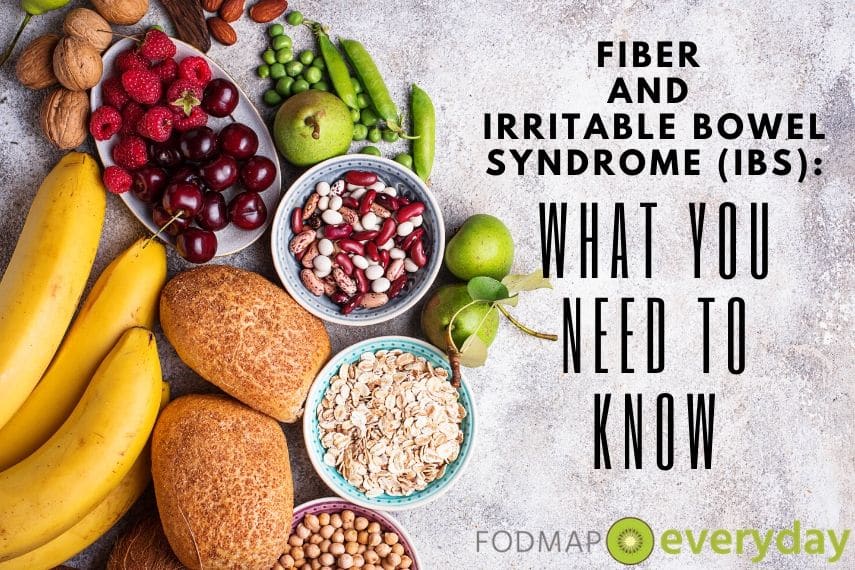
You may want to read Fiber & IBS: What You Need To Know
Dietary Supplements
Probiotics
There are a number of probiotic supplements that have been studied for their effectiveness in relieving constipation related to IBS. The US Probiotic Guide suggests the following probiotics and probiotic-rich foods specifically for constipation:
Other probiotics tested for effectiveness with IBS include:
- VSL #3
- Align®
- BioK+™
- Bio-Kult®
- Genestra Brands® HMF supplements
- Good Belly® products
- GNC Ultra Probiotic Complex
- Jarrow Formula Ideal Bowel Support®
- Metagenics UltraFlora® Intensive Care
There are many other brands out there, so speak with your dietitian for a personalized recommendation.
Probiotics generally exert a mild to moderate effect on constipation and other gut symptoms and you must take them continually for at least a month to see positive impacts.
Osmotic Laxative
Magnesium is a natural osmotic laxative and draws water into the bowel to help soften stool. Many dietitians, including myself, recommend a daily magnesium supplement of 400-800mg daily (or one teaspoon – one tablespoon of powdered magnesium) each day to relieve constipation. Start with a lower dose and increase as needed, as too much magnesium can cause loose stools. (Magnesium citrate is easy to find and can be used, although I do not have much of a preference).
Soluble Fiber Supplements
Soluble fiber supplements are also great tools for addressing occasional or chronic constipation, especially for individuals who are following the low FODMAP diet and are eating less high fiber (note: supplements are not recommended during the Elimination Phase of the diet, unless directed by your Registered Dietitian, or the equivalent in your country).
Fiber supplements such as acacia fiber, partially hydrolyzed guar gum, psyllium husk or wheat dextrin can be helpful in adding bulk to stool and easing bowel movements. Kfibre is a whole-plant complex fiber derived from sugarcane and is Monash University certified as low FODMAP.
Some brand names recommended by GI dietitians include:
- Kfibre (a Monash University Certified Low FODMAP product)
- Regular Girl (a Monash University Certified Low FODMAP product)
- Sunfiber® (a Monash University Certified Low FODMAP product)
- Benefiber
- Citrucel
- Heather’s Tummy Care Fiber
These listed above are usually gentle on the gut and won’t cause gas and bloating. The general recommendation is to start with one teaspoon or caplet per day at bedtime and increase as needed. Again, make sure you are drinking sufficient fluid each day.
Kfibre Is Unique
KFibre is uniformly fermented in the gut and therefore less likely to cause bloating than many other fibers. It is a complex fiber, meaning it’s not isolated or heat treated, which many fiber products are.
Isolated fibers can be soluble or insoluble and when heat treated, other compounds in the plant are destroyed, such as antioxidants. All you end up with is the soluble or insoluble fiber.
Kfibre is considered a complex fibre and is never heat treated. The formula reflects the natural fiber mix of the plant it was derived from. Not being heat treated it retains the polyphenols, antioxidants and other beneficial compounds that are in the plant itself, and it is considered to be a more natural product than heat treated fibers.
Prebiotics, Probiotics + Fiber
Kfibre Pro is not just fiber; it also contains a targeted prebiotic and probiotic blend specifically chosen to increase SCFA (short-chain fatty acid) production and improve overall gut health and function.
There is a risk of a significant drop in the SCFA production when following the low FODMAP diet, due to lack of sufficient dietary fiber, particularly during the Elimination Phase. Kfibre Pro can ease this potential deficiency.
In addition, when used as a daily maintenance support, Kfibre Pro promotes microbiome changes that normalize gut health function and regularity.
Eat Regular Meals
Our gastrointestinal (GI) tract has a regular pattern of digestion and “housecleaning” after each meal (aka the migrating motor complex), requiring about three to four hours to complete the cycle. Eating too frequently can interrupt this process and lead to constipation, so avoid grazing all day.

Instead, try eating three meals per day, with an occasional snack in between. In addition, smaller or liquid-based meals may not properly trigger the gastrocolic reflex, another important GI reflex, which triggers your colon to empty once new food arrives in your GI tract (allowing you to use the toilet shortly after eating), so eating a proper solid meal can also help.
Move Your Body
Regular physical activity is important to digestive health, as movement encourages the progression of food and waste along the GI tract.
A minimum of 30 minutes of brisk activity per day is recommended for all adults for general good health. Constipation sufferers may further benefit from high intensity exercise such as running or HIIT workouts, as these increase the blood flow to the colon and cause other changes to the gut that can help encourage passage of stool.

Be sure to read our entire IBS & Yoga Series!
In addition, yoga has been found to be very effective in aiding the release trapped gas and reducing constipation.
Finally, it’s also thought that regular endurance exercise (running, cycling, etc.) can lead to favorable changes in gut bacteria, reducing inflammation and improving overall gut health.
In a nutshell, any kind of exercise is good exercise. (As always, talk to your doctor before embarking upon an exercise program).

Be Sure To Read: How to Avoid Gastrointestinal Issues During Exercise
Change the Angle
Using a small foot stool or “squatty potty” during toileting can help ensure proper posture and an optimal angle for pooping without straining. There are dozens of options for purchasing these stools online and they can also be found in most pharmacies. If you feel uncomfortable about traveling with one or taking one to work, try to sit on the toilet with your “tippy toes” on the floor and heels up to simulate the same angle.
This video illustrates why changing your angle into a squat is so important.
Medications
Sometimes you’ve tried it all and nothing seems to work. What then?
On the pharmacological front, there are a number of medications that are prescribed for IBS-C and/or other forms of chronic constipation, including:
- Amitiza (lubiprostone)
- Bentyl dicycloverine)
- Levsin (hyoscyamine)
- Linzess (linaclotide)
- Motegrity (prucalopride)
- Trulance (plecanatide)
There are also over-the-counter osmotic and stimulant laxatives such as:
- Miralax (polyethylene glycol)
- Senna
A number of low dose anti-depressants are also commonly used, including:
- Prozac (fluoxetine)
- Zoloft (sertraline)
- Norpramin (desipramine).
Talk with your doctor to see if one of these may be appropriate for your specific situation. Our article on Medications & Supplements will be of help, as well.

Be sure to read: Are You Full of Sh**? Stool Burden and the Low FODMAP Diet
Other Causes of Constipation
In addition, while IBS-C is a common diagnosis, sometimes poop troubles stem from something else altogether, and you may want to explore these with your doctor if the previously mentioned strategies are not working.
Pelvic floor dysfunction. This is an inability to properly contract and relax the muscles in the pelvic floor and may cause straining and trapped gas and stool.
Methane-dominant SIBO (called intestinal methanogen overgrowth or IMO). A predominance of methane-producing bacteria in the small intestine have been linked to slow intestinal transit and constipation.
Gastroparesis. This is a scenario where the nerves and the muscles of the upper GI tract are not properly firing, creating a very sluggish digestive tract.
Each of these conditions can lead to chronic constipation and will require a slightly different treatment plan in order to resolve the core issue and eliminate symptoms. Your healthcare team will help you navigate the best approach.
Stress & IBS
Stress is often a co-factor with IBS. IBS can create stress, and stress can trigger IBS symptoms. If this is true for you, please check out our article on IBS & Stress. Gut-directed hypnotherapy and massage can both reduce stress and are worth looking into.
The Takeaway
You don’t have to live with constant and debilitating constipation. Sometimes it’s trial and error, but the strategies and products mentioned above have been scientifically and clinically shown to work for many individuals.
It’s best to start slowly and trial medications or supplements one at a time, so you can see what works and what doesn’t, and you don’t create further digestive issues by over-doing it.
Beginning with products that are Monash University lab tested and certified low FODMAP, and that are backed by evidence-based research, such as Kfibre Pro, is a great place to start.
If you want to download our Fiber & IBS ebook to easily share or keep with you we have created one for you for .99 just click the picture!
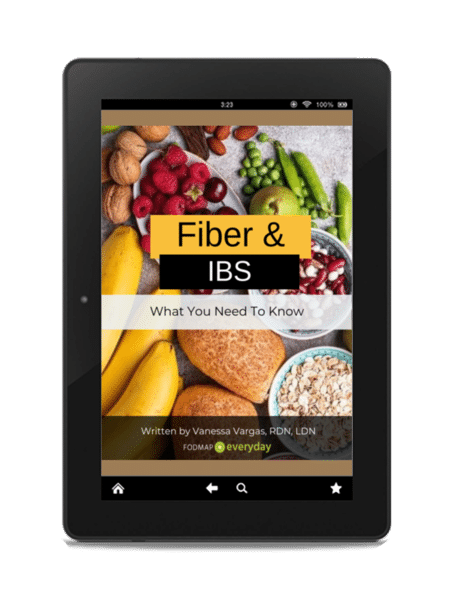
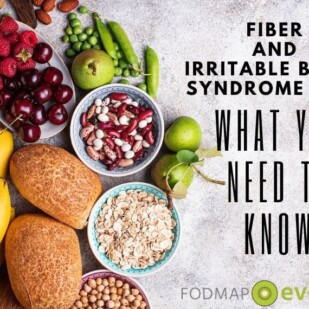




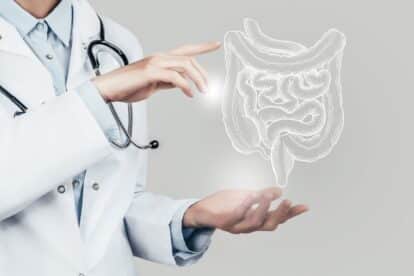

I have a kind of A.L.S and cannot swallow pills. I have been constipated since my childhood. I took Citrucel for years, and it kept me somewhat regular. I am on the reintroduction phase of the fodmap diet. Everything is more difficult for me to swallow now. I have a bulbar form of A.L.S. which is speech and swallowing. Mine comes from my primary lateral sclerosis, a rare disease, so it will not kill me in 2 years. Food has never helped me with my constipation. I have 2 neurologists, and I can ask one of them what they think. They know my limitations. Miralax has helped when I had to have colonoscopies. I tried it recently and it is very hard for me to swallow. What do you think would be the best for me?
Hi Alene, we do not offer direct medial advice. Everyone’s situation is unique and has its own set of complexities. You could share the article with your doctors and perhaps come up with a tailored plan for you.